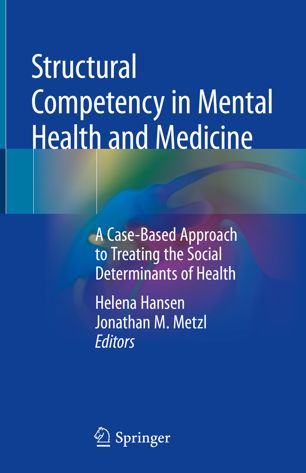

Most ebook files are in PDF format, so you can easily read them using various software such as Foxit Reader or directly on the Google Chrome browser.
Some ebook files are released by publishers in other formats such as .awz, .mobi, .epub, .fb2, etc. You may need to install specific software to read these formats on mobile/PC, such as Calibre.
Please read the tutorial at this link. https://ebooknice.com/page/post?id=faq
We offer FREE conversion to the popular formats you request; however, this may take some time. Therefore, right after payment, please email us, and we will try to provide the service as quickly as possible.
For some exceptional file formats or broken links (if any), please refrain from opening any disputes. Instead, email us first, and we will try to assist within a maximum of 6 hours.
EbookNice Team

Status:
Available5.0
29 reviewsThis book documents the ways that clinical practitioners and trainees have used the “structural competency” framework to reduce inequalities in health. The essays describe on-the-ground ways that clinicians, educators, and activists craft structural interventions to enhance health outcomes, student learning, and community organizing around issues of social justice in health and healthcare. Each chapter of the book begins with a case study that illuminates a competency in reorienting clinical and public health practice toward community, institutional and policy level intervention based on alliances with social agencies, community organizations and policy makers. Written by authors who are trained in both clinical and social sciences, the chapters cover pedagogy in classrooms and clinics, community collaboration, innovative health promotion approaches in non-health sectors and in public policies, offering a view of effective care as structural intervention and a road map toward its implementation.
Structural Competency in Mental Health and Medicine is a cutting-edge resource for psychiatrists, primary care physicians, addiction medicine specialists, emergency medicine specialists, nurses, social workers, public health practitioners, and other clinicians working toward equality in health.